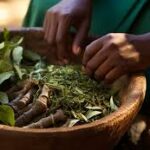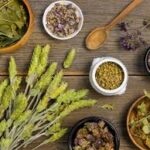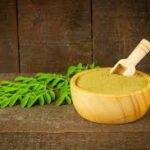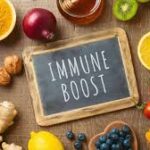African Herbs for Women’s Health: Benefits & Risks

For centuries, African women have relied on herbs to support reproductive health, ease menstrual discomfort, and promote general wellness. From fertility-boosting roots to menopause-balancing plants, traditional medicine plays an important role in women’s lives across the continent. However, while these natural remedies offer many benefits, they also carry risks if misused or consumed without proper guidance. This article explores the most common African herbs used for women’s health, their proven benefits, and the potential dangers.
Popular African Herbs for Women’s Health
1. Dongoyaro (Neem)
Neem is widely used in Africa for its antibacterial and antifungal properties. Women often use neem leaves for vaginal health, detoxification, and menstrual relief.
Risk: Excessive use can affect fertility and cause liver stress.
2. Aidan Fruit (Tetrapleura tetraptera)
This herb is popular in postpartum care. It helps new mothers recover strength, boosts milk production, and aids in uterine contraction after childbirth.
Risk: Overconsumption may lead to hormonal imbalance.
3. Cloves
Cloves are known to relieve menstrual cramps and improve circulation. They are also used as natural remedies for infections.
Risk: In high doses, they may cause blood thinning or irritation.
4. Moringa
Called the “miracle tree,” moringa is packed with vitamins and minerals that support women during pregnancy and lactation.
Risk: High consumption during early pregnancy may lead to complications.
5. Aloe Vera
Aloe juice is used to relieve constipation, balance hormones, and promote skin health.
Risk: Prolonged use of aloe latex may cause kidney problems.
Health Benefits of African Herbs for Women
-
Fertility Support – Herbs like hibiscus, ginger, and aidan fruit are traditionally used to improve fertility.
-
Menstrual & Menopause Relief – Natural remedies help reduce cramps, hot flashes, and hormonal fluctuations.
-
Maternal Health – Postpartum recovery is often aided by herbs that restore strength and encourage healing.
-
Nutrient Boost – Moringa, baobab, and hibiscus provide essential nutrients for women’s health.
Risks and Challenges
While herbs are natural, they are not always safe. Some challenges include:
-
Overdose risks – Excessive intake can lead to toxicity.
-
Herb-drug interactions – Some herbs interact with medications such as contraceptives or blood thinners.
-
Lack of regulation – Many herbs are sold in unstandardized forms, making dosage difficult.
-
Cultural myths – Not all traditional beliefs about herbs are backed by science.
Safe Use of African Herbs
To enjoy the benefits while avoiding risks:
-
Consult a healthcare provider before starting herbal remedies.
-
Use moderate doses and avoid prolonged self-medication.
-
Buy from trusted sources to reduce the risk of adulteration.
-
Combine tradition with science—integrating herbal medicine into modern healthcare ensures safety and effectiveness.
Conclusion
African herbs offer women powerful natural remedies for fertility, menstrual health, and general wellness. However, their use requires balance and proper guidance. By respecting both traditional wisdom and scientific evidence, African women can benefit from herbal medicine while staying safe.
Herbs are not a cure-all, but when used responsibly, they can be an important part of holistic women’s healthcare in Africa.
Written by Fawzi Rufai, Medically Reviewed by Sesan Kareem



